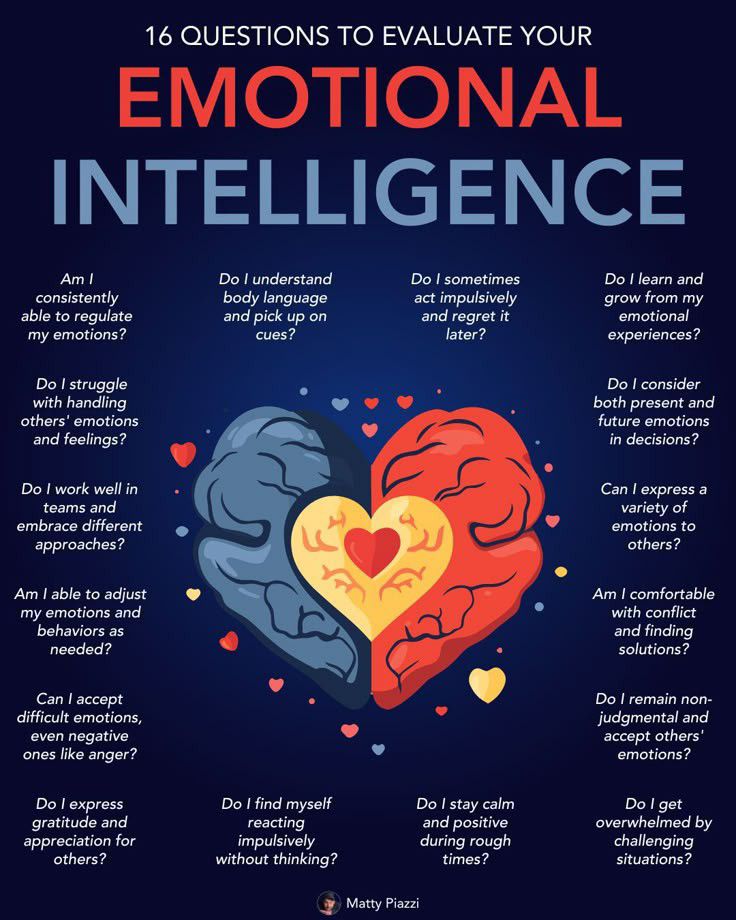
Emotional intelligence (EQ) is a powerful force that shapes our relationships, careers, and overall well-being. It’s the ability to understand, manage, and express our own emotions, as well as to recognize and respond to the emotions of others. While it’s not always easy to assess our own EQ, there are certain questions we can ask ourselves to gain valuable insights.
Here are 16 questions to help you evaluate your emotional intelligence:

Self-Awareness:
1. How do you typically react when you feel stressed or overwhelmed? Are you able to identify your triggers and find healthy coping mechanisms?
2. Do you recognize your strengths and weaknesses? Are you open to feedback and willing to learn from your mistakes?
3. What are your values and how do they influence your decisions? Having a clear understanding of your core beliefs helps you navigate challenging situations with integrity.
4. How do you manage your emotions in challenging situations? Are you able to stay calm and objective, or do you tend to react impulsively?
Self-Management:
5. Do you have a plan for achieving your goals? Are you able to stay motivated and focused, even when faced with obstacles?
6. How do you handle criticism? Do you take it personally or use it as an opportunity to learn and grow?
7. Are you able to control your impulses and resist distractions? Self-discipline is essential for success in all areas of life.
8. Do you prioritize your well-being and take care of your physical and mental health? This includes getting enough sleep, eating healthy, and engaging in activities that bring you joy.

Social Awareness:
9. How good are you at reading other people’s emotions? Do you notice subtle cues and understand their perspective?
10. Do you actively listen to others and try to understand their point of view? This involves paying attention, asking questions, and reflecting on what they’re saying.
11. Are you empathetic and compassionate? Do you have the ability to connect with others on an emotional level and share in their feelings?
12. Do you consider the impact of your words and actions on others? Being mindful of your communication style helps you build strong relationships.
Relationship Management:

13. How do you build and maintain healthy relationships? Are you able to communicate effectively, resolve conflicts constructively, and show appreciation for others?
14. Are you able to inspire and motivate others? Leadership skills are essential for building a strong team and achieving shared goals.
15. Do you know how to build consensus and negotiate effectively? This involves finding common ground, compromising when necessary, and reaching mutually beneficial solutions.
16. Do you actively seek out opportunities to learn and grow? A commitment to continuous improvement is essential for developing your emotional intelligence.
- How to make the authentic Nigerian Chicken stew
- How to make the most delicious egusi soup
- The Future of Nigerian Food: Trends and Innovations Shaping the Culinary Scene
- Delicious and Affordable Recipes for Every Wallet
- How to make the most delicious Nigerian jollof rice
By honestly reflecting on these questions, you can gain valuable insights into your emotional intelligence. This self-awareness will empower you to make positive changes in your life, strengthen your relationships, and achieve your goals.











Leave a Reply